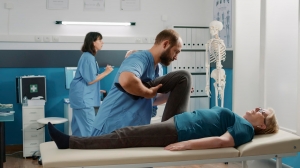Marriage counseling is a structured form of therapy designed to help couples address conflicts, improve communication, and rebuild trust. It offers a space where partners can work with a professional to understand their challenges and find practical solutions to strengthen their relationship.
Many couples seek counseling to navigate difficult times or to prevent minor issues from becoming larger problems. By focusing on open dialogue and emotional connection, counseling supports couples in making informed decisions about their future together.
Whether a relationship is facing ongoing tension or sudden crises, marriage counseling can provide valuable tools for improving intimacy and resolving disputes. It is a proactive step toward building a healthier and more satisfying partnership.
The Role of Counseling in Marriage
Counseling provides couples with tools to navigate challenges, improve their interaction, and rebuild their connection. It targets specific relationship dynamics and helps partners develop healthier patterns.
Benefits of Marriage Counseling
Marriage and counseling offers couples structured support to manage conflicts and build stronger bonds. It helps identify underlying issues that may not be evident during everyday interactions.
Key benefits include:
- Reduced frequency and intensity of arguments
- Clarification of expectations and needs
- Improved emotional support and intimacy
- Tools for ongoing conflict resolution
Counseling also promotes mental health by addressing stressors that impact the marriage, such as external pressures from work or family. Its benefits extend beyond conflict management to fostering growth and resilience in the relationship.
Common Issues Addressed
Couples often enter counseling for a variety of challenges. Common issues include communication breakdowns, trust problems, and differing life goals.
Other frequent concerns are:
- Financial stress
- Parenting disagreements
- Emotional disconnection
- Past traumas affecting current dynamics
Counselors help couples uncover root causes and patterns that contribute to these issues. By bringing these to light, couples can work on solutions that are tailored to their unique relationship.
How Counseling Improves Communication
Effective communication skills are central to a healthy marriage and a primary focus in counseling sessions. Therapists teach techniques to express thoughts and feelings clearly and listen with empathy.
Key communication improvements include:
- Reducing blame and criticism
- Practicing active listening
- Using “I” statements instead of “you” statements
- Managing conflict without escalation
By fostering respectful dialogue, counseling helps couples break negative cycles and build more productive and supportive interactions. This foundation supports both problem-solving and emotional connection.
Approaches and Strategies for Effective Marriage Counseling
Marriage counseling involves specific techniques, the selection of a skilled professional, and clear goals to guide progress. Effective sessions rely on structured therapeutic methods tailored to the couple's needs. Counselors and couples work together to define objectives that shape the counseling process and measure success.
Therapeutic Techniques and Methods
Counselors commonly use Cognitive-Behavioral Couple Therapy (CBCT) and Emotion-Focused Therapy (EFT) as foundational methods. CBCT targets negative thought patterns and behaviors that harm the relationship, encouraging healthier communication and problem-solving skills. EFT focuses on identifying and expressing emotions to increase emotional responsiveness between partners.
Other approaches include integrative behavioral couple therapy and solution-focused techniques, which emphasize practical problem resolution and enhancing relationship satisfaction. Effective counseling balances understanding emotional dynamics with actionable changes, creating a more resilient partnership.
Choosing a Qualified Counselor
Selecting a counselor with credentials in marriage and family therapy or related fields is critical. A qualified counselor should have experience working specifically with couples and offer evidence-based practices like CBCT or EFT. Licensing and professional affiliations provide additional assurance of competence.
Compatibility matters; couples often benefit from a counselor whose style and approach align with their values. Asking about the counselor's training, methods, and success rates during initial consultations helps ensure the best fit, increasing the likelihood of positive outcomes.
Setting Therapy Goals
Clear, measurable goals guide the counseling process and help track progress. Common goals include improving communication, rebuilding trust, resolving specific conflicts, and strengthening emotional intimacy. Goals should be realistic, mutually agreed upon by both partners, and flexible to adapt as sessions proceed.
Goals often focus on both immediate concerns and long-term relationship health. Couples and counselors periodically review these objectives to adjust strategies, ensuring the therapy remains relevant and effective throughout the process.





